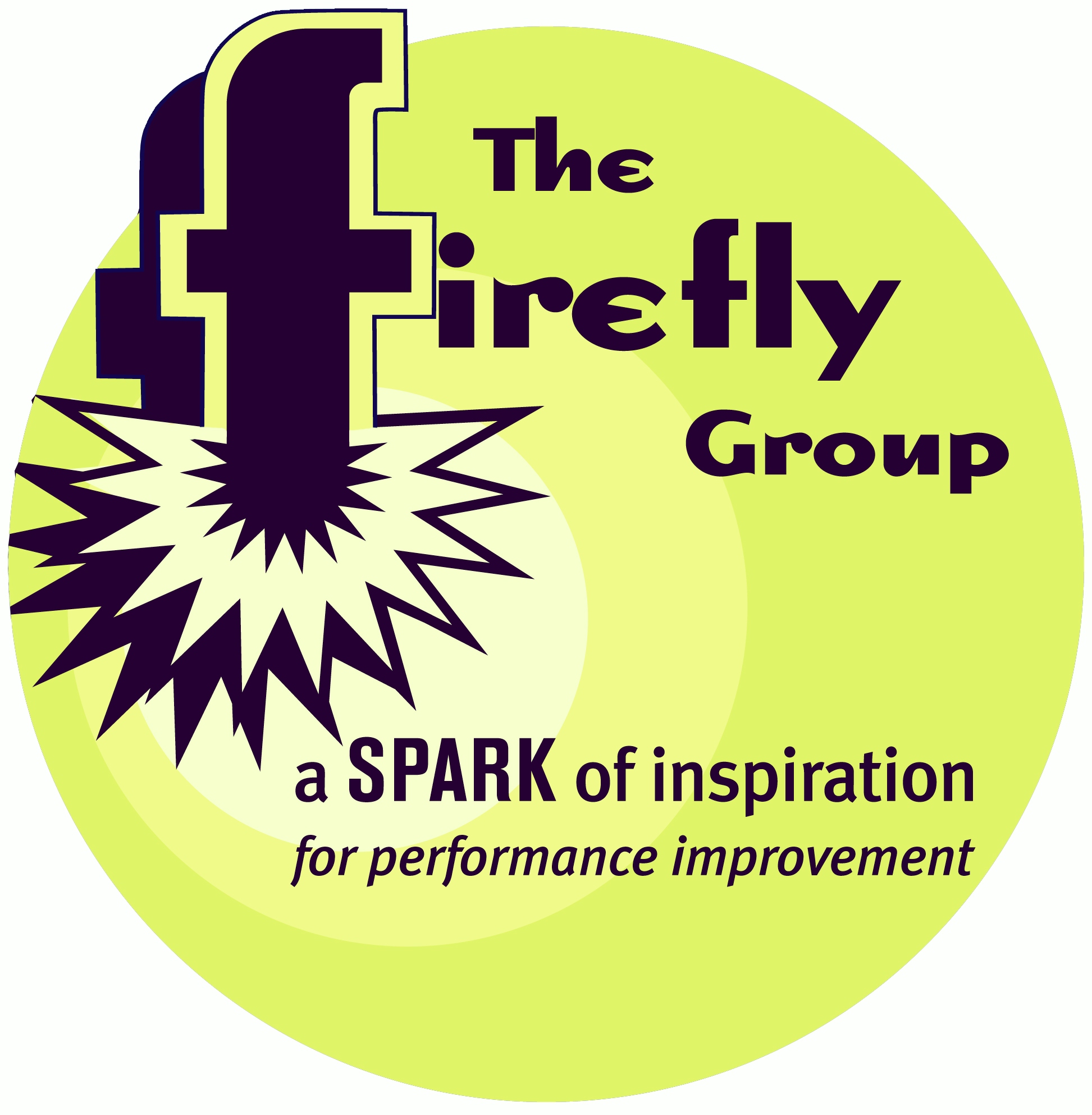

What's New

Words of Wisdom
52
cards and 15 activities to spark conversations and make sense of learning.
Learn more HERE.
What We Do
The Firefly Group helps people make sense of what they learn and experience.
Whether facilitating a group for better decision-making, keynoting a conference, leading a training, or writing an instructional design, we use novel methods that engage, spark creativity, and produce memorable results.
 If
this sounds like a good direction for your organization, let's talk about
how we might collaborate! Please give me a call (802.257.7247) or send an
. - Brian
If
this sounds like a good direction for your organization, let's talk about
how we might collaborate! Please give me a call (802.257.7247) or send an
. - Brian
 Your ETR (Estimated Time to Read): 10 minutes Your ETII (Estimated Time to Implement Ideas): 5 weeks |
What
can you teach with a eight washers tethered to a string?
Watch my video and find out!
February
2018
Conversing about Questions: Who's asking?
|
Say
It Quick |
Discoveries bits of serendipity to inspire and motivate |
Ideas fuel for your own continuous learning |
Activities tips and tricks you can try today |
|
Banter Management - Controlling a conversation for better understanding |
Conversing about Questions - Who's asking? |
Test Questions - Who should know the answer? |
Curiosity - Sharpen your ability to learn by asking questions |
Conversing
about Questions: Who's asking?
Asking questions is a powerful strategy to encourage learning. Questions focus
attention, confirm knowledge, and reinforce thinking patterns. The person
who asks the questions sets the direction. They are in charge. This means
we should be strategic about who is allowed and encouraged to do the asking.
Consider the nuances of asking questions in this issue of the Firefly News
Flash.
Banter Management
I was proud of my accomplishments as a second language learner. I had been taking lessons weekly. I had developed an extensive vocabulary. My tutor announced months before that I had learned all the Spanish grammar I would need. Yet, I could not participate in conversations with my Ecuadorian friends. They spoke so quickly that I couldn't even form a sentence before the dialogue would shift to something else.Then I strategized. To reduce my confusion, I talked one-on-one whenever possible. And I asked questions. At least then I knew the topic and could follow the conversation.
 Conversing
about Questions
Conversing
about Questions
Out of town on a business trip, I stepped into a restaurant and found myself
waiting for a table with two people who looked familiar. It turned out they
were from the same town so we decided to dine together.
Though we had not met before, I knew of Scott Ainslie and his wife Barbara. Scott is a successful singer, composer, performer, and educator. Based in New England, he tours the country giving concerts, teaching guitar, and delivering music lessons as diverse as "The African Roots of 'Cool'" and "How to Make a Cigar Box Guitar."
Through the evening's conversation, I discovered we shared a common interest in experiential, action-based learning. Scott mentioned that he often begins a music lesson by encouraging students to ask questions. In fact, he gives his students extensive practice in fine tuning their curiosity.
Usually, it's the instructor at the front of the room who asks questions and is responsible for the learning. But as Scott pointed out, "The one who asks the question is the one in charge of the learning."
And as the 99-Word Story illustrates, that's empowering!
More Information:
Scott Ainslie, his music, and his teaching: https://cattailmusic.com/
 Test
Questions
Test
Questions
Recently I was asked to observe several trainers and offer suggestions to
improve their facilitation skills. One thing that stood out as I watched the
trainers was the type of questions they put to the group.
One type of question was intended to engage the participants. In a workshop on better communication, for example, one trainer asked, "Has anyone here ever had a miscommunication they wished they could undo?"
Another type of question from the same workshop was, perhaps, designed to elicit agreement. The trainer asked, "Is cursing ever appropriate in the workplace?"
If I had been a participant in this class instead of an observer, I would not have wanted to answer either of these questions. The first would make me worry that I'd have to "confess" my nasty deed. The second has an embarrassingly obvious answer so why bother responding?
What disturbs me about these questions is that the person asking them already knows the answer. And if the teacher knows the answer, why should I bother responding at all? Obviously the teacher doesn't really care what I think.
These questions only provide a means for the teacher or trainer to stay in control: control of information; control of their relationship with participants; control of where students focus their attention; control of the application of learning.
In contrast, my wife talks about how empowered she feels by a visit to her doctor. He provides detailed information about her health then asks, ""Questions? Questions? Any more questions?" She doesn't leave the clinic until her concerns are addressed and her curiosity is satisfied.
If someone asks a question but they already know the answer, then they are really conducting a test. As the person answering, should you shout out your best response or is it better to play it safe, keep quiet, and not risk being the target of ridicule or shame if you reply incorrectly?
To avoid creating a testing situation, here's my new rule of thumb for facilitators, teachers, parents, trainers, managers, and leaders:
"If you already know the answer to a question, don't ask it!"
Curiosity
As a facilitator and designer of training, I pride myself in my ability to
ask provocative and thoughtful questions. My intention is to provide an opportunity
for deeper reflection and more lasting learning.
But it's true that I could work harder so that participants do the asking and take control of their learning.
Here is an activity adapted from a technique Scott Ainslie has used to engage teen-aged students in his music classes. Try it with your team if you want to foster an environment ripe for learning.
Curiosity
Goal: to sharpen skills related to critical thinking, creativity, and learning
Participants: Any number working in groups of two
Time: 30 minutes
Materials: A list of provocative statements posted or distributed to participants; Paper and pens
Procedure: Explain to everyone that most of the time when we are learning, someone asks us questions. Often those questions have a correct answer. If we know that answer, it might indicate the level of our knowledge. Unfortunately, level of knowledge doesn't necessarily relate to what we have learned or how we will use what we learned.
It's important to ask questions that will engage our curiosity and lead us to learn even more. When that happens, we can choose to learn any time and in any situation we wish. This activity will give everyone practice in being curious.
Distribute paper and pens to each pair and ask them to write both parters' names on the top of a sheet. Next share an example of a provocative statement and invite the whole group to come up with questions related to it. You can find interesting questions at Harper's Index published regularly in Harper's Magazine. Select several samples from their archives (click HERE) or write your own.
Here is a sample statement from the January 2009 Archive:
Amount for which George W. Bush successfully sued Enterprise Rent-A-Car in 1999: $2,500.
And here are some questions people have generated about it:
- Why did Bush sue the car company?
- What were the details of the incident leading to the suit?
- Where did the incident happen and who else was involved?
- How much did he pay his lawyer; how much did Enterprise pay theirs?
- Why couldn't Bush settle the matter out of court?
- Who was Bush's lawyer and is that person still his lawyer?
- Does Bush rent cars from Enterprise or does he boycott that business?
- How did Bush spend his settlement?
The list of questions could keep going. And that's the point.
After you have given this practice, distribute a different provocative statement to each pair. Give them three minutes to write as many questions as they can.
Here are a few more sample statements from Harper's Archive of January 2009:
- Year in which a political candidate first sued Palm Beach County, Florida over problems with hanging chads: 1984
- Total amount the Bush campaign paid Enron and Halliburton for use of corporate jets during the 2000 recount: $15,400
- Percentage of Bush's first 189 appointees who also served in his father's administration: 42
- Minimum number of Bush appointees who have regulated industries they used to represent as lobbyists: 98
When the time is up, ask each pair to switch their statement and questions with another pair. Invite everyone to add questions to the paper they just received. Allow about three minutes.
Again, ask people to trade papers with new partners and add to the list of questions on the paper they now have. After three minutes, return the papers to their original authors. Invite people to comment on how their original list of questions has changed.
It's always important to follow up any learning activity with a few group discussion questions. But in this activity, take a risk as the facilitator. Invite the group to lead their own discussion. Encourage pairs to ask questions of the group that will help everyone apply any lessons they have just learned about being curious.
Please give this activity a trial with your group then your experience.
|
Whether you need a keynote speaker, or help with strategic planning, performance improvement, or training facilitators and trainers in your organization, I look forward to your call (802.380.4360) or . -- Brian |
Read previous
issues. Click Library!
To add or delete your name to our mailing list, email
with a short note in the subject line.
I want this newsletter to be practical, succinct, and thoughtful. If you have suggestions about how I can meet these criteria, please let me know! Send me an with your thoughts and ideas.
Home
| Services | Products
| Mission | Ideas
| The Group | The
Buzz
(c)
2017 The Firefly Group